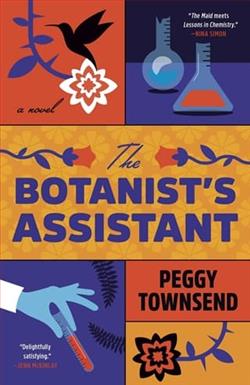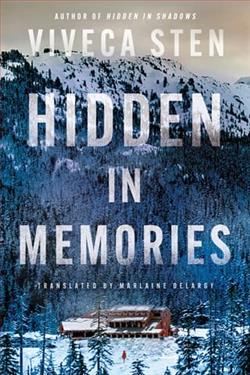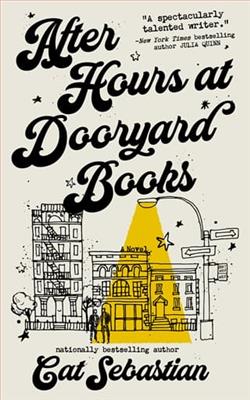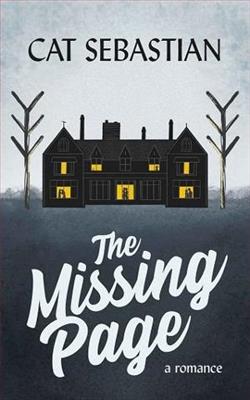Page 27 of The House of Cross
Judge Pak’s father had wrestled for South Korea in the Olympics before immigrating to the United States. U-Jinn Pak taught his son everything he knew about grappling and he attended every one of his matches and every one of his graduations.
The old man had finally passed the previous week, and he was on Judge Pak’s mind as he left the James R. Browning U.S. Courthouse around nine fifteen that evening.
A chill drizzle fell. It was three days before Christmas Eve, and Pak had meant to leave work earlier to get some shopping done for Allie, his new girlfriend. But time seemed to slip away while he was writing an opinion for the majority on the Ninth Circuit Court of Appeals.
Pak knew he could easily call an Uber, but he had a warm raincoat and an umbrella, and his shoes were Gore-Tex-lined. Further, he was hung up on a certain part of the opinion he was writing and had a looming deadline, and in these situations, Judge Pak found that by walking, he could get out of his head and let his subconscious work.
He glanced at his watch. If he hurried, he could make last call at his favorite ramen joint on the near side of Hayes Valley, not far from where he lived.
Pak had owned his home for decades, since long, long before Hayes Valley became the trendiest neighborhood in the City by the Bay. As he walked toward Market Street, he noted the homeless encampments that seemed to appear out of nowhere every day.
Judge Pak felt compassion for these people. At one point in his father’s life, shortly after arriving in the United States, he’d been homeless and hungry. Judge Pak’s dad had spoken of that time as the great humiliation of his life.
So the judge cared. He really did. But his compassion was reaching its limit. He had to avoid needles on the sidewalk, and drug dealers were openly selling fentanyl and meth as he passed the public library.
He felt little or no fear at the situation. His sheer size and bearing were usually enough to keep street folks from coming at him.
But something had happened recently. He felt a tipping point had been passed. In his view, the number of homeless and drug-addicted people roaming the streets of San Francisco had grown almost exponentially. So had the number of empty storefronts, many of them boarded over. It saddened and angered him at the same time.
The rain picked up. He had to lower his umbrella against the sudden wind.
Crossing Van Ness Avenue, Judge Pak saw yet another encampment behind the seven spreading jacaranda trees on the lawn at the southeast corner of the opera house. Tarps. Tents. Smoke from a campfire, which was totally illegal.
He did not notice the hippie chick in the filthy long skirt, Ugg boots, locs, and a dark rain jacket slip out of the encampment, pull up her hood, and follow him.
Judge Pak walked along the side of the opera house thinking about Allie, his new free-spirited girlfriend.
He took a left on Franklin Street and headed south past the darkened symphony hall. In his mind, he heard Allie telling him to focus on what was right with life, not what was wrong.
That took all of the judge’s concentration. He remained unaware of the hippie chick shortening the gap between them on the otherwise deserted sidewalk, her footfalls muffled by the rain pattering against his umbrella.
From the pocket of her jacket, she eased out a nine-inch double-bladed combat knife. She closed the last few feet and began telling him who she was and why his game was up.
The judge tried to spin around to see her. But it was too late.
With surgical precision and raw power, the hippie chick drove the razor-sharp knife through Pak’s raincoat, through his suit coat, shirt, and undershirt, through his skin, and deep into his right kidney. She twisted the blade.
The judge squealed like a pig and continued to shudder after she pulled the blade out. But then she stabbed his left kidney and twisted again.
Pak locked up, paralyzed, not breathing, making no sound, impaled on the blade, his nervous system in complete shock. She yanked her weapon free and walked off, leaving the judge sprawled on the sidewalk, seconds from death.
CHAPTER 19
NED MAHONEY WAS NOTIFIEDof the murder shortly after midnight, East Coast time. He called me. Leaving thoughts of Professor Whelan’s obsession with the late Judge Franklin behind for the moment, we were on an FBI jet at six.
That was what happened when two judges in the U.S. Court of Appeals system were murdered in cold blood within days of each other. According to Mahoney, our case had gone from a top priority of the Bureau to number one with a bullet.
Mahoney was feeling the heat, fielding calls from Director Hamilton and her deputies for our whole trip across the country. I drank coffee and read everything I could find about the late judge.
When Ned at last hung up, he rubbed his forehead and said, “Any parallels to the Franklin case?”
“Quite a few, actually,” I said. “They knew each other whenshe clerked for Justice Rolling and Pak clerked for Justice Mayweather.”
“Huh,” Mahoney said. “I heard Mayweather’s cancer has come back.”
I made a note of that, then gave him the other similarities in the two dead judges’ backgrounds. They were both ethnic minorities: Pak was the son of South Korean immigrants, and Franklin was the great-granddaughter of sharecroppers in Georgia.
Both had lost spouses. Pak’s wife, Leigh, had passed three years ago after a long bout with breast cancer. Franklin’s husband had died in a plane crash the previous spring.















